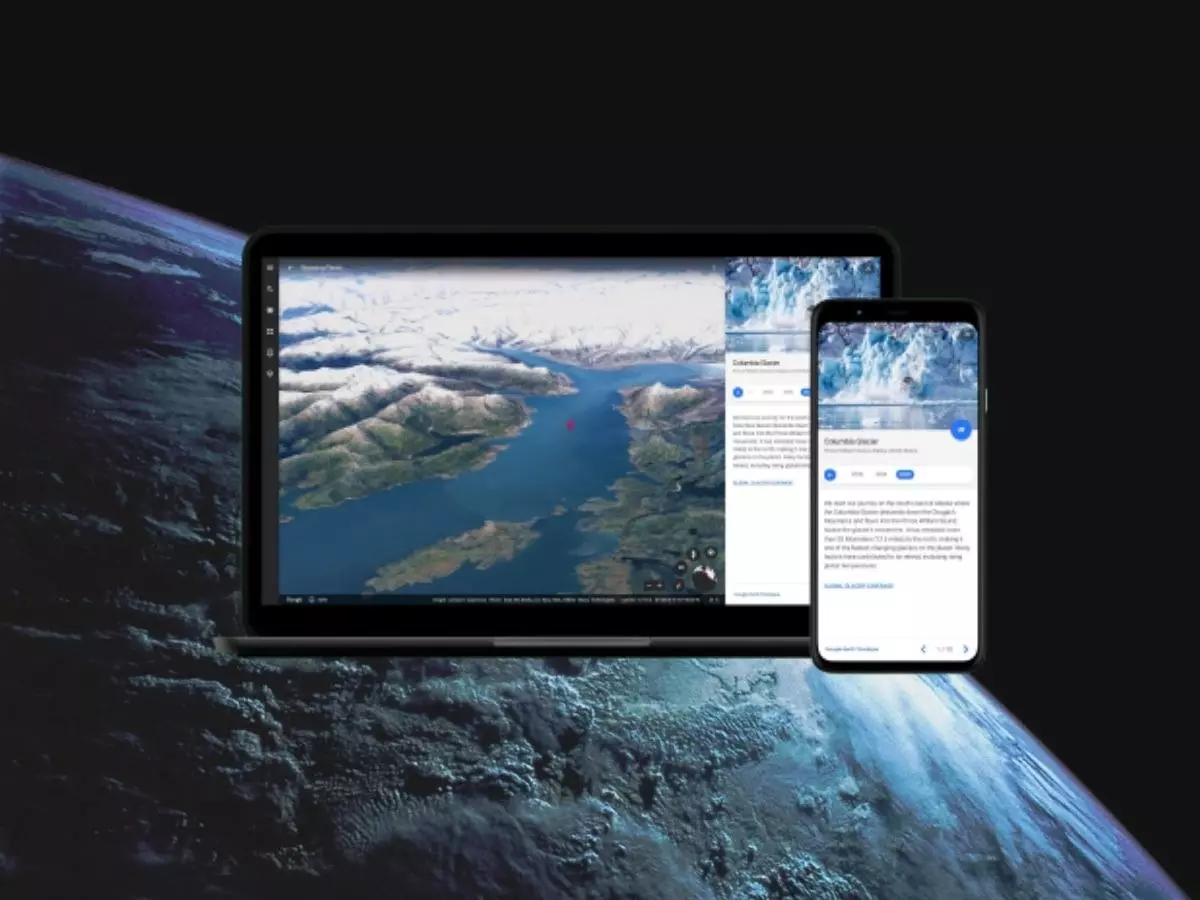Google Earth Timelapse Shows How Our Planet Has Changed In 37 Years
Google Earth is getting a new 3D Timelapse feature that lets users observe how our planet has changed in the past 37 years. This feature has been developed using 24 million satellite images which allow users to witness nearly four decades of planetary change--from 1984 to 2017--in an interactive 4D experience.

Google Earth is already a mighty tool to observe our planet. But now it¡¯s getting a new 3D Timelapse feature that lets users observe how our planet has changed in the past 37 years, in what Google says is the biggest update the company has made to the platform since 2017.
 Google
Google
The company said in a blog post that this feature has been developed using 24 million satellite images, which allow users to witness nearly four decades of planetary change--from 1984 to 2017--in an interactive 4D experience.
With the new animated Timelapse imagery, users can see how global warming, deforestation and urban expansion have affected a particular region over time. There are also some highlighted sections that show you some of the bigger changes in key locations around the world.
Notably, Google Earth did have a simplistic timelapse option before, and I had previously used that to show the loss of forest cover in the Aravalli hills.
But this is a major upgrade with a full 3D coverage of the entire globe. You can practically pick any place on the Earth, change camera angles, and select a specific year you want to see. And make a timelapse that looks like this.
Timelapse in Google Earth is the visual evidence of dynamic change on our planet from climate change and human behavior. Our hope is that it will be used to educate and inspire.
¡ª Google Earth (@googleearth) April 15, 2021
Check out https://t.co/PFPV1qhWXx to access 800+ ready-to-use videos to create your own stories. pic.twitter.com/p3wHAnWmqY
"Making a planet-sized timelapse video required a significant amount of what we call 'pixel crunching' in Earth Engine, Google's cloud platform for geospatial analysis,¡± Rebecca Moore, Earth Engine and Outreach director of Google Earth, explained.
¡°It took more than 2 million processing hours across thousands of machines in Google Cloud to compile 20 petabytes of satellite imagery into a single 4.4 terapixel-sized video mosaic--that's the equivalent of 530,000 videos in 4K resolution,¡± she added.
Now it would be a shame if I didn¡¯t show you these remarkable changes.
The expansion of Las Vegas
 Google
Google
Agriculture in the middle of a desert in Al Jowf, Saudi Arabia
 Google
Google
How Surui people protected Amazon rainforest they call home in Rondonia, Brazil
 Google
Google
How Kuwait City has changed over the years
 Google
Google
Are you happy with this tool? Have you tried Google Earth's 3D timelapse feature? Which places have you seen through it? Let us know in the comments section below...
